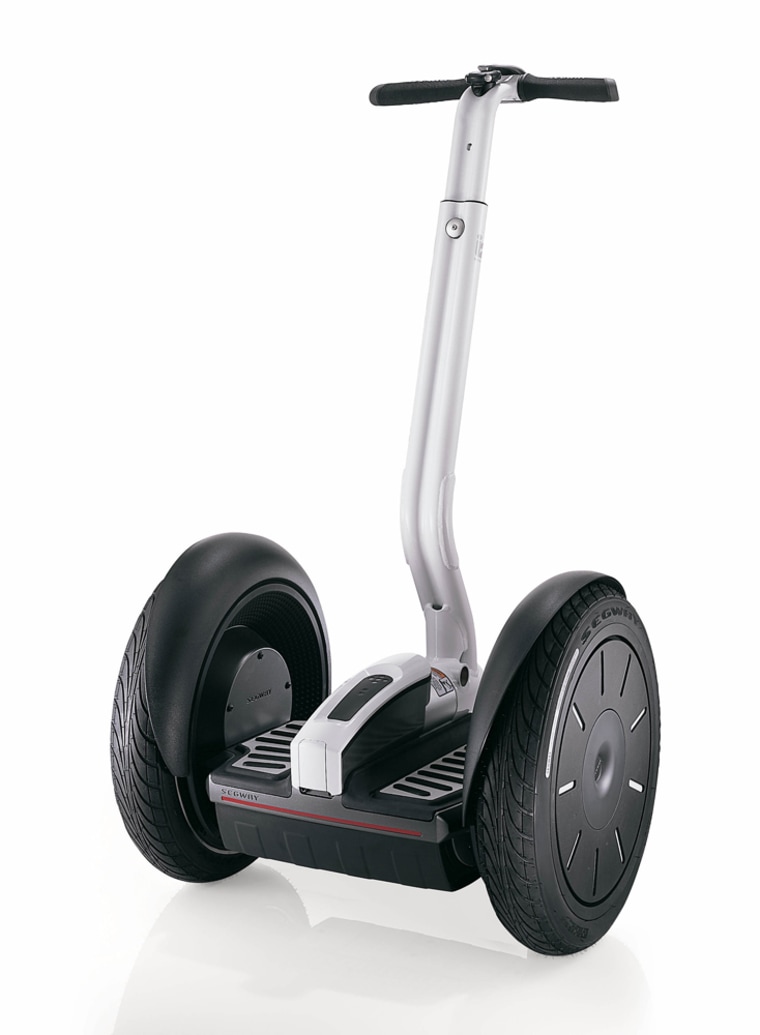Dutch police banned Segways from all public roads, bike paths and walkways as of New Year's Day, surprising the nation's official importer of the two-wheeled, self-balancing scooters.
Segway Nederland director Piet Kruijt said Tuesday the company was "completely ambushed" by the decision, first announced by national police on Nov. 27, 2006.
"We're working on all fronts to get this resolved," Kruijt said. He estimated that "a number of hundreds" of Segways have been sold in the Netherlands. For the time being, they are only legal on private property.
Police said that with no approval of the vehicles in sight by the country's Royal Traffic Agency, they could not be allowed to continue using public streets.
The Segway "is a motorized vehicle, and according to Dutch law, a mo-ped," a police statement said.
But because the Traffic Agency hasn't approved the vehicle, the police statement said, it can't be issued license plates.
"It's a nice vehicle, I've ridden one myself," said Hans van Geenhuizen, a spokesman from the Traffic Agency, which is responsible for licensing. But he said the agency cannot license the Segway under current law.
"It doesn't have a brake, you brake by leaning back, and that's clearly not permissible," he said.
The Traffic Agency is part of the Transport Ministry, but the Transport Ministry referred questions to the Justice Ministry.
Leo Maats, a spokesman for the traffic enforcement division of the national prosecutor's office, confirmed the rule would be enforced, but with so few Segways in operation it may take some time for the message to trickle down.
Kruijt called the situation a bureaucratic tangle that would eventually be resolved — but it was difficult to get politicians to notice the problem while the Dutch government is in a caretaker phase after Nov. 22 elections. Coalition talks to form a new government are just beginning.
In neighboring Germany and Belgium, new laws have been drafted to govern Segway use.
"This is definitely not the end of the Segway in the Netherlands," said Hans de Jong, a distributor. He pointed out that the Segway would help the Dutch government meet environmental goals and some government arms are using them in pilot projects: notably military police at Schiphol Airport — which is private property.
He conceded that it may be a while before government regulations on Segways are resolved, and at the moment it is not even clear whether police are issuing tickets. "It's Jan. 2. I have no idea what my clients are doing," he said.
An Amsterdam police spokeswoman said she was not aware of the policy change — or what a Segway is.
A spokesman for Amsterdam Segway Tours said the business was closed until March due to ice, which makes it difficult to operate the scooters.
It hasn't frozen in Amsterdam yet this winter, the warmest in the Netherlands in 300 years of recorded history.
"That could change at any moment," the spokesman said.
